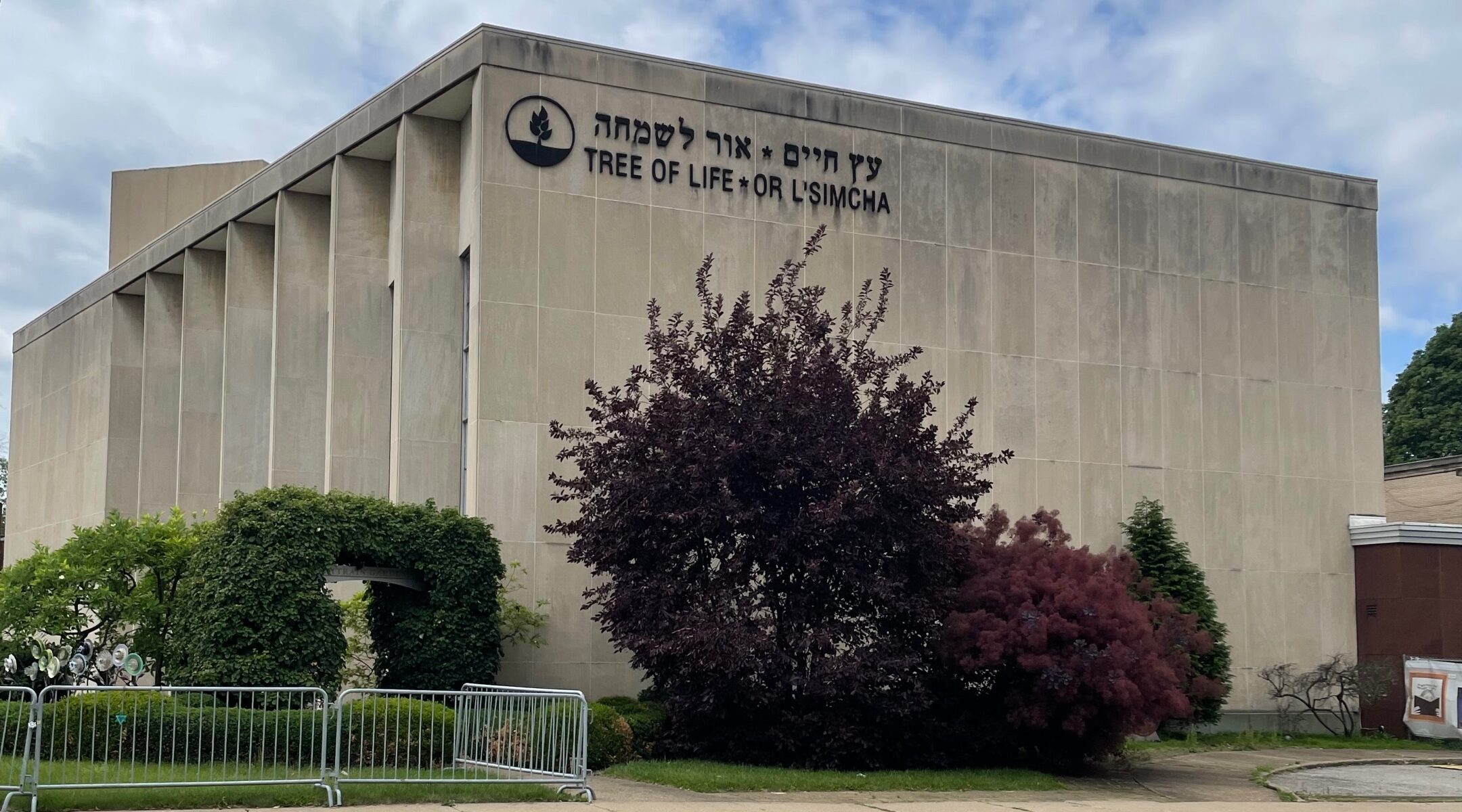PITTSBURGH (JTA) — A jury has given the Pittsburgh synagogue shooter a death sentence, handing down the maximum punishment for the deadliest antisemitic attack in American history.
The sentence marks an end to the months-long trial of Robert Bowers, who was convicted in June of murdering 11 Jews during Shabbat prayers on Oct. 27, 2018. The shooting, at a synagogue in the historically Jewish neighborhood of Squirrel Hill, changed the way Jews across the United States viewed themselves and their place in American society. It was a stark example of a rising tide of antisemitism and led Jewish institutions across the country to bolster their physical security.
The gunman’s lawyers had not contested his guilt but argued that the act was a result of his mental illness and did not merit a death sentence. On Wednesday, the jury rejected that argument, deciding unanimously that he should be put to death. Many of the victims’ families, though not all, had pushed for the gunman to receive a death sentence.
Bowers’ sentence makes him the most prominent person to be condemned to death for antisemitic crimes since Adolf Eichmann, convicted and executed by Israel in 1962 for his role in perpetrating the Holocaust.
U.S. District Judge Robert Colville, who presided over the trial, is bound to honor the jury’s verdict. The jury’s decision, though, does not mark an end to the case, as Bowers, like all people sentenced to death, is entitled to an appeal.
Colville took 26 minutes to read the entirety of the jurors’ responses, including detailed votes on each of the factors that the prosecution and defense should figure into their decision-making.
The jurors’ assessments of the 115 factors the defense offered for why Bowers should not be executed showed that they had not accepted the defense’s central argument: that Bowers’ antisemitism stemmed from a mental illness.
The jury unanimously agreed that Bowers’ expressions of “hatred and contempt toward members of the Jewish faith and his animus toward members of the Jewish faith played a role in the killings of the victims,” Colville read aloud from the list of factors that the prosecution argued merited the death penalty.
When Colville announced the death sentence at 12:15 p.m., there was no visible or audible response in the courtroom at first.
That came after the judge delivered a speech thanking the jury for its service, as he has hundreds of times before. “I have never delivered it with as much as sincerity,” he said, pausing to gather himself, “as I did now.”
Andrea Wedner, whom Bowers shot and who on the day of the massacre mouthed “Mommy” as a first responder led her away from the corpse of her mother, erupted in sobs. A young relative placed her hand on the back of Patricia Fine, Bowers’ aunt, who on the last day of the trial testified how much she loved her nephew — and how much she believed she and others had failed him.
The verdict is a rare failure for Bowers’ lead attorney, Judy Clarke, who has represented some of the most high-profile murderers in recent U.S. history, including Ted Kaczynski, known as the Unabomber; the surviving Boston Marathon bomber; and the white supremacist who opened fire in a Jewish community center outside of Los Angeles in 1999. She had successfully argued in all but one case that the men should spend their lives in prison, not be executed for their crimes.
Stephen Cohen, the co-president of New Light, one of the three congregations targeted in the shooting, said earlier this week that he expected a measure of relief upon learning the verdict, whatever it was. But he said he did not expect it to be long-lasting.
“There’s a whole debate that has been going on for five years, you know, should there be a trial? Should he be forgiven? Should he get life imprisonment? Should he get the death penalty?” he said on Monday evening. “And all the questions that are trying to get resolved… have been swirling around for five years. We all just want a resolution.”
Regarding the jury’s verdict, he added, “Is that a resolution one way or another? It is a resolution. And at that point, you know, maybe there’s a way to, to even move forward in a positive sense. But you know, it’s the death penalty. Then there’ll be appeals. And if there are appeals, you know, everybody will have to testify again in court. If he’s imprisoned, will he have the ability to speak? There are no good answers.”
Bowers killed 11 people who were worshipping at three congregations: Tree of Life, New Light and Dor Hadash. The victims were Joyce Fienberg, Richard Gottfried, Rose Mallinger, Jerry Rabinowitz, Cecil Rosenthal, David Rosenthal, Bernice Simon, Sylvan Simon, Daniel Stein, Melvin Wax and Irving Younger.
Bowers’ trial began on May 30. On June 16, the jury found him guilty of all 63 counts he faced. On July 13, the jury decided that his crimes were eligible for the death penalty.
Since 1988, when the federal death penalty was reintroduced after 16 years during which it was ruled unconstitutional, only 16 federal executions have taken place, all by lethal injection. The vast majority of them — 13 — took place during a short period in the last year of Donald Trump’s presidency. Dylann Roof, the man who murdered nine worshippers in a Black church in Charleston, South Carolina, is on federal death row now.
The man who opened fire at a synagogue in Poway, California, in 2019, killing one person, was sentenced in federal court in 2021 to life plus 30 years in prison.
JTA and the Pittsburgh Jewish Chronicle teamed up to cover the full Pittsburgh synagogue shooting trial. Please support our coverage and the future of Jewish journalism.
JTA has documented Jewish history in real-time for over a century. Keep our journalism strong by joining us in supporting independent, award-winning reporting.






